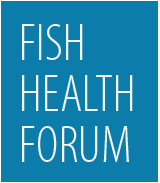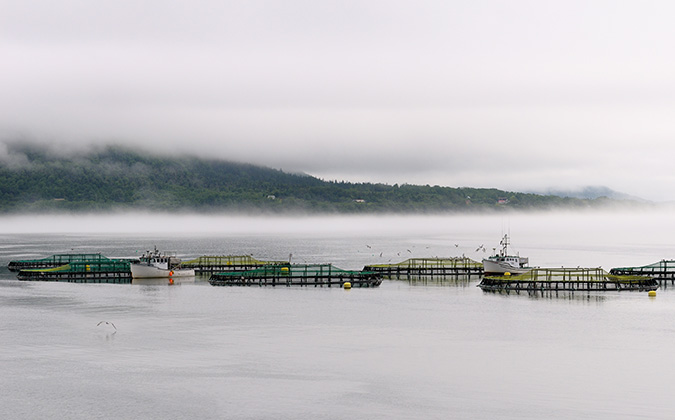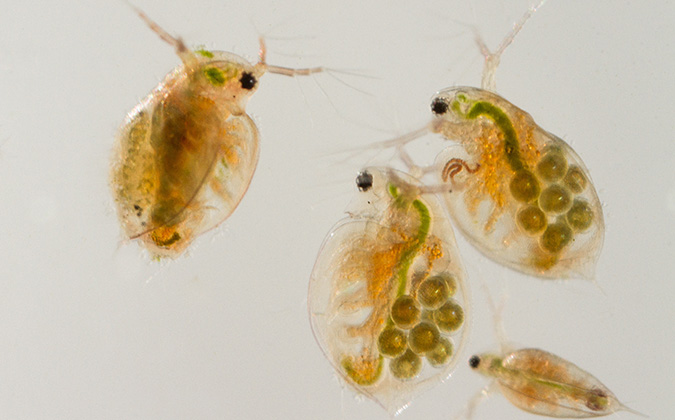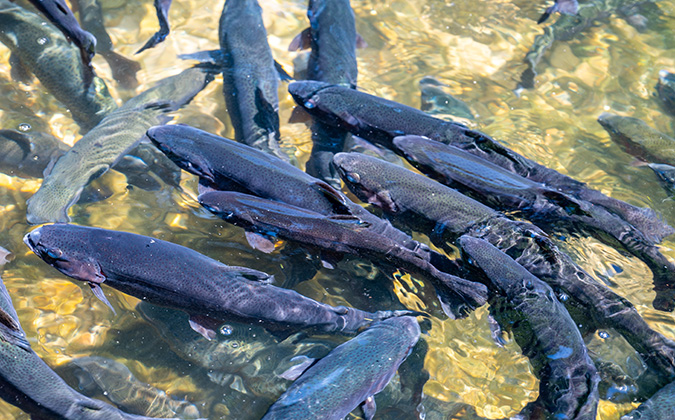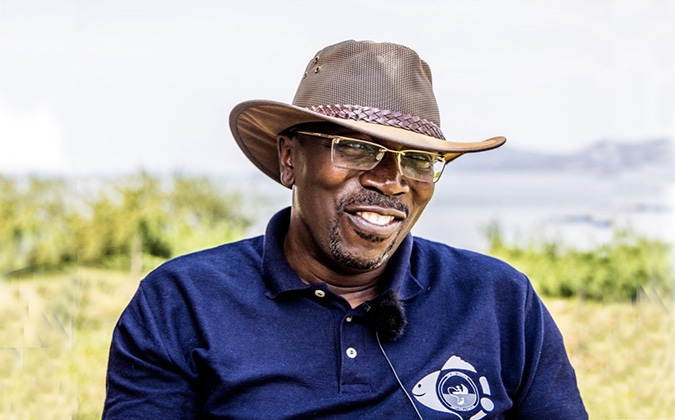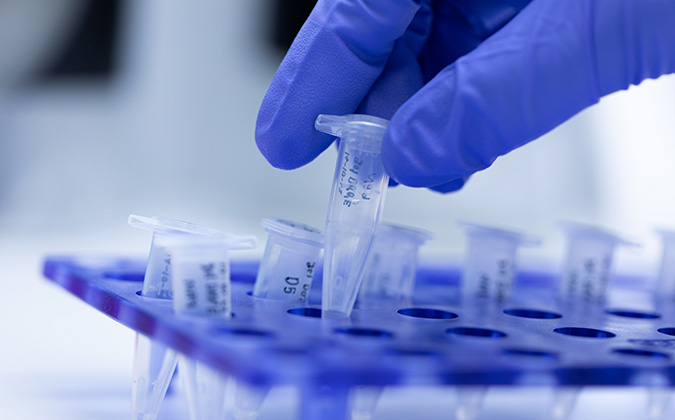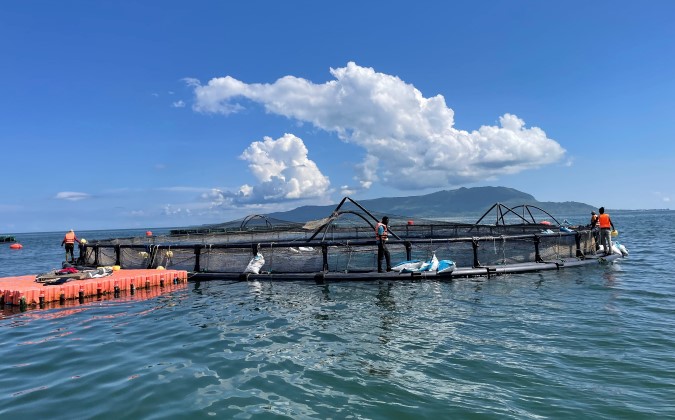
Fish health-focused trainings bring growth to Colombian tilapia sector
An innovative project focused on delivering aquaculture skills trainings in Colombia is helping to boost productivity, sustainability and job growth in the country’s burgeoning tilapia sector.
The project, launched in 2019, is a collaborative effort by the Norwegian Agency for Development Cooperation (Norad), the non-government organization Caritas and its Colombian partner, La Pastoral, with support from PHARMAQ and Colombia’s National Authority on Aquaculture and Fishing (AUNAP).
Tilapia production in Colombia has grown rapidly in the last decade, now rivaling coffee as the country’s top export. The main supplier of tilapia to the US, Colombia reported US $54 million in tilapia exports in 2018 — a 34% increase on the year before — and is on track to grow further as the country targets increased exports to Europe.
Keeping fish healthy while driving for improved productivity and sustainability is critical to continued growth, says biologist Mónica Avilés Bernal, a consultant for AUNAP who is closely involved with the project. Vaccination and diagnostics play a key role in controlling disease and limiting the need for antibiotic treatment, but in Colombia, training and technology transfer are needed to successfully implement such measures, she says.
Vaccination training
To meet this need, the Norad-Caritas project has partnered with PHARMAQ to provide trainings in best aquaculture practice and fish health management, including vaccination techniques.
“The key to successful vaccination is having trained personnel,” says Claudia Maira, DVM, senior scientist and technical support veterinarian at PHARMAQ.
“The time from when the fish are picked up, vaccinated and returned to the water is just a few minutes, but it requires careful planning and preparation. In this process everything must be done at a certain rhythm — not too slow and not too fast — to ensure an appropriate vaccination.”
Developed and delivered by PHARMAQ experts, the trainings emphasize theory as well as practical skills in tilapia vaccination and diagnostic sampling. The company also provides equipment and products for all the vaccinations carried out under the project.
In total, more than 300 workers will be trained in two of Colombia’s top tilapia-producing departments, Huila and Caquetá, with 215 workers having completed the training to date. In addition, PHARMAQ personnel have made 25 site visits, trained 160 workers on tilapia diseases and 20 more on sampling and diagnostics for disease surveillance purposes, Maira says.
Huila: Tilapia central
In Huila, the 7,400-hectare Betania Reservoir, with a production capacity of 22,000 tons of fish, is the center of Colombian tilapia production. There, the project collaborators have partnered with Pisícola Botero, one of Colombia’s largest tilapia producers and exporters. They also work with ASOPISHUILA, the association for medium-sized tilapia producers.
The project in Huila targets over 200 farmers in 10 different municipalities. Local entrepreneurs — those already working in fish farming, along with those just starting out — are trained in how to start and run a small aquaculture business, as well as in fish health management and vaccination, Avilés says.
The PHARMAQ-led vaccination trainings are open to workers of all backgrounds, from those with no prior experience on up to university professors. As a group, university professors — and not just those with aquaculture backgrounds — are one of the key demographics targeted for the training because of their teaching skills and ability to reach others. The hope, Avilés says, is they will become vaccination “multipliers” and keep the trainings going, in Huila and beyond.
Caquetá: Post-war recovery
While the project’s focus in Huila is on making the area’s thriving tilapia industry more productive, competitive and sustainable, the trainings in Caquetá have an important, additional purpose.
Caquetá was one of the areas of Colombia where the decades-long civil war took place. Now that peace has come to the area, the goal of Norad-Caritas is to reintegrate combatants back into society.
“Some of these ex-soldiers have only known war and fighting their whole lives,” Avilés says. “The training in Caquetá, therefore, has a much different emphasis than in Huila: giving those on the fringes of society a marketable skill and new source of income through aquaculture.”
That’s where La Pastoral comes in, Colombia’s representative for Caritas. In Caquetá, the project aims to train 100 people in four different municipalities. La Pastoral focuses on improving the quality of life for others, while working with businesses of all sizes. The focus on the social aspects of people’s lives is something that was missing from previous training projects, Avilés notes.
La Pastoral, which is also involved with the project in Huila, coordinates with the private aquaculture and environmental experts who carry out the teaching.
As in Huila, the project in Caquetá includes training university professors. Tilapia are raised in ponds in this part of the country, and it’s still a very small sector but with considerable growth potential, Maira says. In this region, however, there’s more emphasis on producing native fish species as Caquetá is in the Amazon river basin, she adds.
Building foundations for the future
Thinking in the long term, Avilés says the Colombian tilapia industry has room to grow — not only in terms of exports but also in domestic consumption, which is still relatively small. Maintaining fish health will continue to be of critical importance for this future growth both domestically and abroad, she stresses.
The impact of the vaccination training goes well beyond Huila and Caquetá, particularly as the Betania reservoir is at full production capacity, Avilés notes, and the expansion of the tilapia sector will likely take place elsewhere.
“In the long run, having skilled vaccinators with an understanding of fish health management has implications at a national level,” she says.
